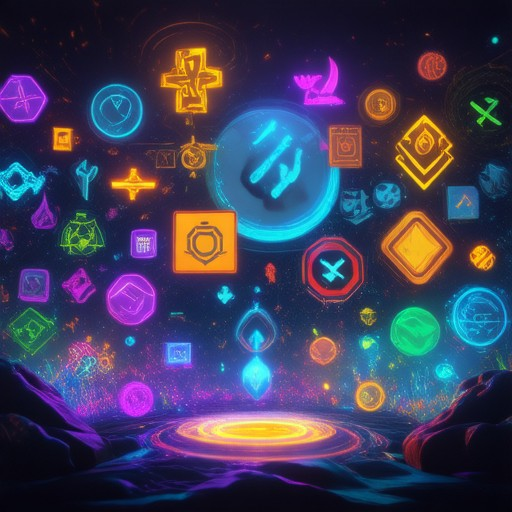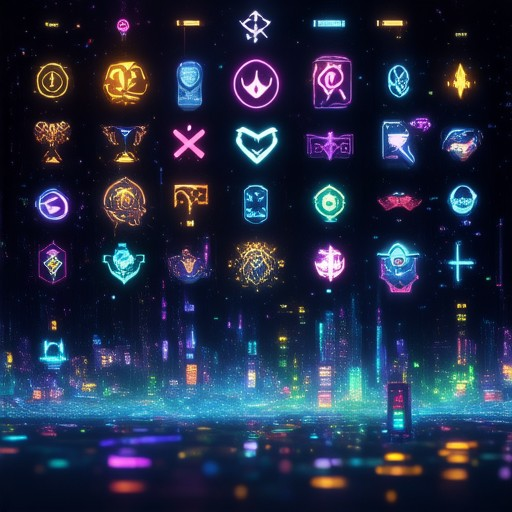Managing game communities has become a cornerstone of modern gaming culture, fostering connections between players, developers, and brands. Whether you’re new to the role or looking to refine your skills, understanding the strategies behind building and maintaining these groups can be crucial for both gamers and businesses alike. This guide delves into the intricacies of managing game communities, offering insights from industry experts and real-world experiences. From navigating the complexities of player relationships to leveraging tools and resources, we’ll explore everything you need to know to thrive in this dynamic field. By examining the roles, responsibilities, and best practices, this article equips you with actionable tips and tricks to lead a thriving gaming community. Whether you’re aiming to build a dedicated fanbase, enhance player engagement, or drive business success, the art of managing game communities is essential for anyone involved in the gaming ecosystem.

What Do Game Community Managers Do?
Game community managers play a crucial role in fostering engagement and building a loyal fanbase for games. Their responsibilities span various aspects of community management, including event coordination, communication, moderation, and strategic planning. Here’s a breakdown of their primary duties:
Event Management
- Organizing live events, conventions, and tournaments to connect with fans.
- Overseeing Q&A sessions, meet-and-greets, and autograph signings with developers.
- Ensuring smooth event logistics, including venue setup and crowd control.
Communication Channels
- Managing social media platforms, forums, and official websites to engage fans.
- Writing newsletters, updates, and blog posts to keep the community informed.
- Responding to feedback and addressing concerns promptly.
Community Moderation
- Monitoring online discussions to maintain a positive community environment.
- Enforcing rules and guidelines to prevent harassment or spam.
- Mediating conflicts and resolving issues in a fair manner.
Building Relationships
- Collaborating with influencers and content creators to expand reach.
- Engaging with fans through contests, polls, and exclusive content opportunities.
- Representing the game brand at events and in online spaces.
Strategic Planning
- Analyzing community feedback to identify improvements and trends.
- Developing strategies to grow the community and increase retention.
- Staying updated on industry trends to adapt approaches effectively.
Resources and Support
- Linking to valuable resources like Indie Dev Games for developers seeking tools and tips.
- Providing guides and articles to help creators enhance their projects.
- Sharing success stories and case studies to inspire the community.
By excelling in these areas, community managers contribute significantly to the growth and satisfaction of game enthusiasts, ensuring the community remains active and engaged.
How Much Do Game Community Managers Make?
The salary for a game community manager varies based on factors such as location, experience, and the size of the employer. According to recent data:
- Average Salary Range:** Approximately $45,000 to $70,000 annually.
- Location Impact:** Professionals in urban areas like San Francisco or Los Angeles often earn higher salaries due to the cost of living, ranging from $60,000 to $90,000 annually.
- Experience Level:** Entry-level positions typically start around $35,000 to $50,000, while mid-career professionals may earn $55,000 to $80,000 annually. Senior roles can reach up to $75,000 to $100,000 or more.
- Benefits:** Common benefits include health insurance, retirement plans, paid time off, and potential bonuses or profit-sharing programs.
For specific job postings, salary figures can vary, but the range generally aligns with these estimates. Factors such as company size, industry, and specific responsibilities can also influence earnings.

Duties of a Community Manager
A community manager plays a pivotal role in fostering and managing online communities, ensuring brand loyalty and customer satisfaction. Their responsibilities encompass a variety of tasks aimed at building and maintaining a positive brand image and engaged audience.
- Community Engagement: Actively interact with members through social media platforms, forums, and live events to foster a sense of belonging and connection.
- Content Creation: Develop and curate original content, including blog posts, videos, and updates, to keep the community informed and entertained.
- Community Moderation: Monitor and regulate discussions to ensure compliance with guidelines, addressing inappropriate content, and maintaining a respectful environment.
- Analytics and Reporting: Utilize tools like Google Analytics and social media insights to track community performance, engagement levels, and feedback.
- Collaboration: Work closely with marketing, sales, and product teams to align community efforts with broader business objectives.
- Crisis Management: Respond to and resolve conflicts or crises within the community, ensuring transparency and trust during challenging situations.
- Education and Support: Provide helpful information, assist with issues, and guide members to get the most out of available resources and features.
At Indie Dev Games, we understand the importance of a thriving community. Our platform offers comprehensive resources, including tutorials , reviews , and tips , to support indie game developers in their journey. By leveraging our expertise, community managers can enhance their strategies and ensure their communities grow sustainably.

What Are Gaming Communities?
Gaming communities are groups of individuals who share a passion for gaming, whether through video games, board games, or other interactive mediums. These communities often come together to share experiences, discuss strategies, and connect with like-minded enthusiasts. They can take various forms, from online forums and social media groups to local meetups and gaming leagues.
Types of Gaming Communities
- Online Forums : Platforms like Reddit (e.g., r/gaming), Discord servers, and specialized forums dedicated to particular games or genres.
- Social Media Groups : Facebook groups, Twitter chats, and Instagram communities focused on gaming culture.
- Local Meetups : In-person gatherings where gamers can socialize, play games, and participate in tournaments.
- Esports Communities : Focused on competitive gaming, these communities often revolve around specific games or leagues.
- Genre-Specific Communities : Groups centered around certain types of games, such as indie games, RPGs, or mobile games.
Benefits of Joining Gaming Communities
- Enhanced Learning Opportunities : Gain tips, tricks, and strategies from experienced players.
- Access to Exclusive Content : Some communities offer early access to games, beta versions, or behind-the-scenes content.
- Networking Possibilities : Connect with developers, influencers, and other gamers for collaboration or sponsorship opportunities.
- Sense of Belonging : Build friendships and relationships in a supportive environment.
How to Join
- Online Communities : Search for relevant groups on platforms like Reddit, Discord, or Facebook.
- Local Events : Attend gaming conventions or organize your own meetup using platforms like Meetup or Eventbrite.
- Social Media : Follow gaming accounts and engage with their communities to find active groups.
By participating in gaming communities, you can enrich your gaming experience, learn from others, and contribute to a vibrant and growing culture.
How to Create a Gaming Community
To establish a thriving gaming community, follow these organized steps:
- Define Your Niche : Clearly identify your target audience and the type of games you want to focus on. Whether it’s indie games, retro classics, or multiplayer online games, having a defined niche helps attract like-minded individuals.
- Build a Dedicated Team : Recruit moderators and admins to manage discussions, enforce rules, and ensure a positive environment. Consider offering incentives for volunteers who can help maintain community standards.
- Create Engaging Content : Regularly update your community with news, reviews, and exclusive content. Use newsletters, social media, and forums to keep members informed and engaged.
- Host Events and Competitions : Organize tournaments, meetups, or live stream events to foster interaction. These activities can also attract new members and keep the community active.
- Foster a Welcoming Atmosphere : Implement guidelines to ensure respect and inclusivity. Create a “newbie” section or assign mentors to help integrate new members smoothly.
- Promote Your Community : Utilize social media, forums, and partnerships with influencers or other communities to spread the word. Collaborate with game developers to attract potential members.
- Encourage Member Contributions : Allow members to participate in decision-making processes, such as voting on features or contributing content like reviews and guides.
- Stay Updated and Adaptive : Keep track of gaming trends and member feedback to continuously improve the community. Be open to changes that align with member needs and preferences.
- Legal and Safety Measures : Establish clear moderation policies and ensure compliance with legal requirements. Protect member data and maintain a safe environment for all participants.
- Measure Success : Track metrics like membership growth, engagement levels, and event participation to evaluate the community’s health and effectiveness.
By following these steps, you can build a vibrant and active gaming community that fosters connections and enriches the gaming experience for everyone involved.

The Most Popular Game Community
Several platforms stand out as the most popular gaming communities, each attracting millions of engaged members:
- Reddit – r/Gaming : With over 50 million subscribers, this subreddit is one of the largest online gaming communities, known for its extensive discussion threads, memes, and competitive spirit.
- Twitch : As the leading live-streaming platform, Twitch hosts over 10 million concurrent viewers monthly, making it a hub for gamers watching and interacting with streamers.
- YouTube Gaming Channels : Thousands of creators have built massive followings by sharing gameplay videos, reviews, and let’s plays, collectively amassing billions of views.
- Discord Servers : Countless gaming communities use Discord to chat, share content, and organize events, with many servers dedicated to specific games like Minecraft, League of Legends, and Fortnite.
- Steam Community : While primarily a platform for purchasing games, Steam also hosts vibrant forums and workshops where gamers share mods, guides, and discuss their favorite titles.
- Facebook Gaming : With its vast user base, Facebook Gaming has become a significant platform for live streams, highlights, and interactions between gamers and fans.
- Twitter Gaming : Twitter is a hotspot for gaming news, updates, and real-time discussions, with many influencers and brands leveraging the platform to engage with fans.
- Regional Communities : In countries like Japan, communities on platforms like 2channel and Akihabara thrive, focusing on niche genres and cultural aspects of gaming.
These communities thrive due to their active participation, unique content offerings, and strong sense of belonging among members. Whether through streaming, forums, or social media, these platforms collectively shape the modern gaming culture.




0 Comments